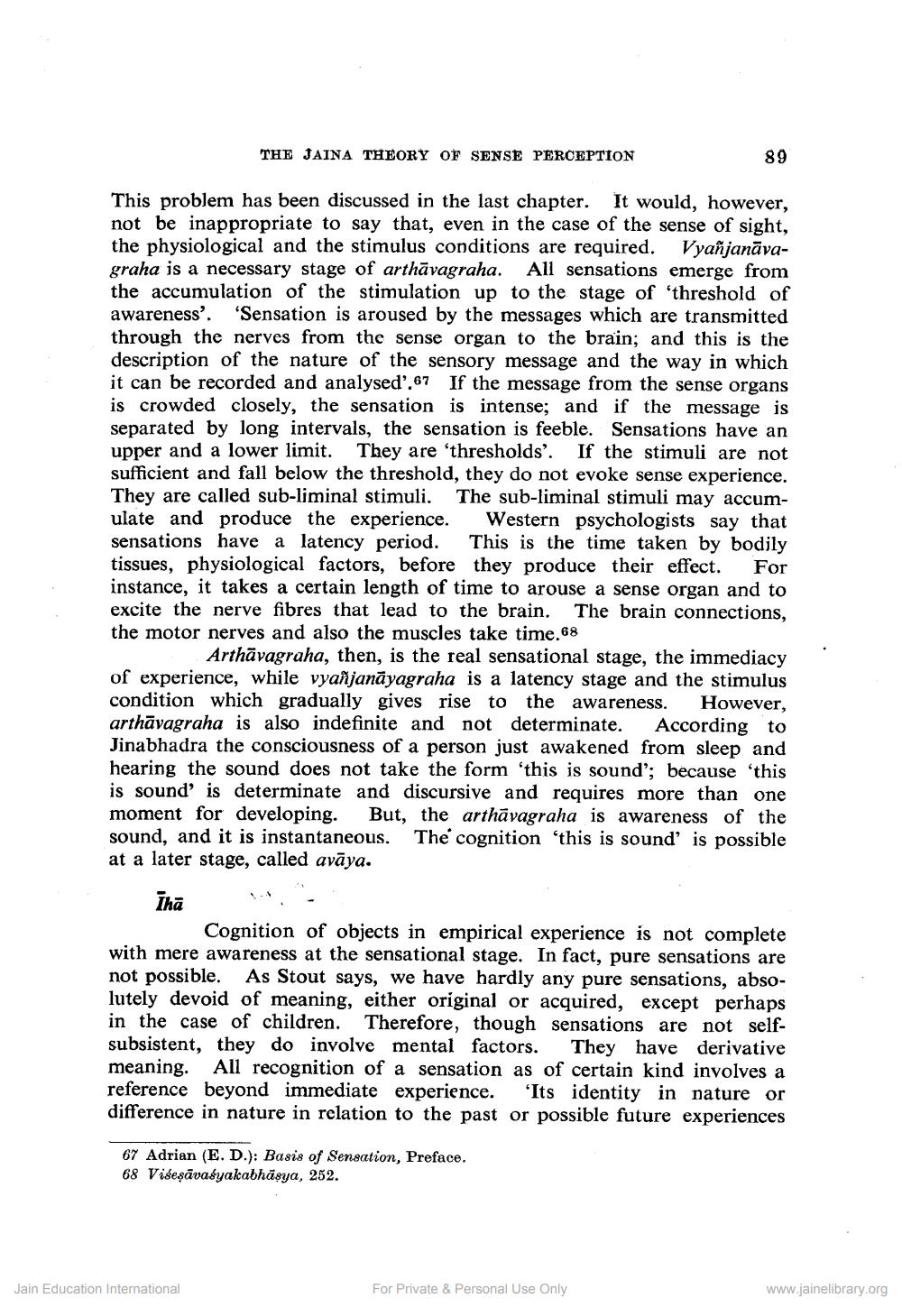________________
THE JAINA THEORY OF SENSE PERCEPTION
89
This problem has been discussed in the last chapter. It would, however, not be inappropriate to say that, even in the case of the sense of sight, the physiological and the stimulus conditions are required. Vyañjanāvagraha is a necessary stage of arthāvagraha. All sensations emerge from the accumulation of the stimulation up to the stage of 'threshold of awareness'. 'Sensation is aroused by the messages which are transmitted through the nerves from the sense organ to the brain; and this is the description of the nature of the sensory message and the way in which it can be recorded and analysed'. 67 If the message from the sense organs is crowded closely, the sensation is intense; and if the message is separated by long intervals, the sensation is feeble. Sensations have an upper and a lower limit. They are 'thresholds'. If the stimuli are not sufficient and fall below the threshold, they do not evoke sense experience. They are called sub-liminal stimuli. The sub-liminal stimuli may accumulate and produce the experience. Western psychologists say that sensations have a latency period. This is the time taken by bodily tissues, physiological factors, before they produce their effect. For instance, it takes a certain length of time to arouse a sense organ and to excite the nerve fibres that lead to the brain. The brain connections, the motor nerves and also the muscles take time.68
Arthāvagraha, then, is the real sensational stage, the immediacy of experience, while vyañjanāyagraha is a latency stage and the stimulus condition which gradually gives rise to the awareness. However, arthāvagraha is also indefinite and not determinate. According to Jinabhadra the consciousness of a person just awakened from sleep and hearing the sound does not take the form 'this is sound'; because this is sound' is determinate and discursive and requires more than one moment for developing. But, the arthāvagraha is awareness of the sound, and it is instantaneous. The cognition 'this is sound' is possible at a later stage, called avāya.
Tha
Cognition of objects in empirical experience is not complete with mere awareness at the sensational stage. In fact, pure sensations are not possible. As Stout says, we have hardly any pure sensations, absolutely devoid of meaning, either original or acquired, except perhaps in the case of children. Therefore, though sensations are not selfsubsistent, they do involve mental factors. They have derivative meaning. All recognition of a sensation as of certain kind involves a reference beyond immediate experience. Its identity in nature or difference in nature in relation to the past or possible future experiences
67 Adrian (E. D.): Basis of Sensation, Preface. 68 Viseşāvaéyakabhāsya, 252.
Jain Education International
For Private & Personal Use Only
www.jainelibrary.org




